On the afternoon of December 1, Institute for AI Industry Research, Tsinghua University held the Establishment and Contract Signing Ceremony at TusPark Technology Building. This marks another major step taken by Tsinghua in building itself into a world-class university and innovating university-industry cooperation.
Present at the ceremony were President of Tsinghua University Qiu Yong, Vice President Yang Bin and Zheng Li, Chairman and CEO of Lenovo Yang Yuanqing, Co-founder of AsiaInfo and Chairman of China Broadband Capital Tian Suning, Founder and CEO of Sinovation Ventures Li Kaifu, Co-founder and Vice Chairman of Xiaomi Lin Bin, Chairman and Co-founder of BGI Group Wang Jian, Founder of Vanke and Co-chairman of BGI Group Wang Shi, CEO of Sougou Wang Xiaochuan, Vice-President of Baidu Li Zhenyu, Head of Beijing Academy of Artificial Intelligence Huang Tiejun, Dean of Tsinghua University School of Information Science and Technology Dai Qionghai, Dean of Tsinghua University Institute for AI International Governance and Schwartzman College Xue Lan. Yang Bin was the host.
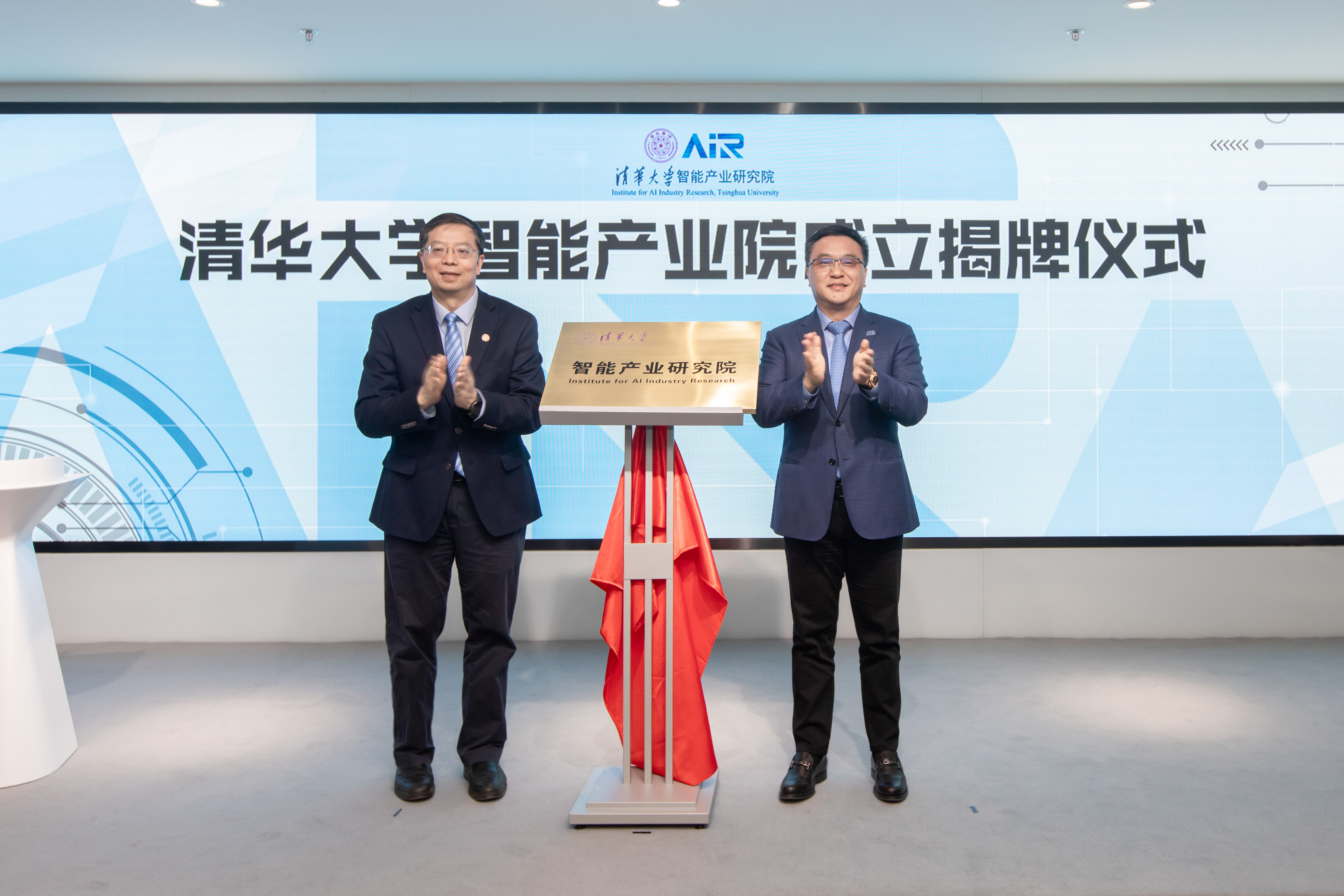
[Qiu Yong and Zhang Yaqin unveil the nameplate]
AIR focuses on applied research geared towards the internationalization, intelligentization, and industrialization of the fourth technological revolution. Its mission is to fuel the industrial upgrade and propel social advance with AI technologies. With university-enterprise as double engines for innovation, AIR aims to make breakthroughs in core AI technologies, develop future industry-leaders, and achieve leapfrog progress with the industry.
At the ceremony, Qiu Yong and AIR Director Zhang Yaqin together unveiled the nameplate. Zheng Li read theDecision to Establish Institute for AI Industry Researchby Tsinghua University.
[Schwab sends video message]
Klaus Schwab, Founder and Executive Chairman of the World Economic Forum, and a major pioneer of the fourth industrial revolution, sent a video message to congratulate on AIR. Schwab pointed out that the industrial revolution we’re now experiencing is disruptive, and that AIR came at the right time. He looked forward to AIR and WEF joining hands to unleash great potential in this revolution and make greater contributions to the welfare of mankind and the development of society.
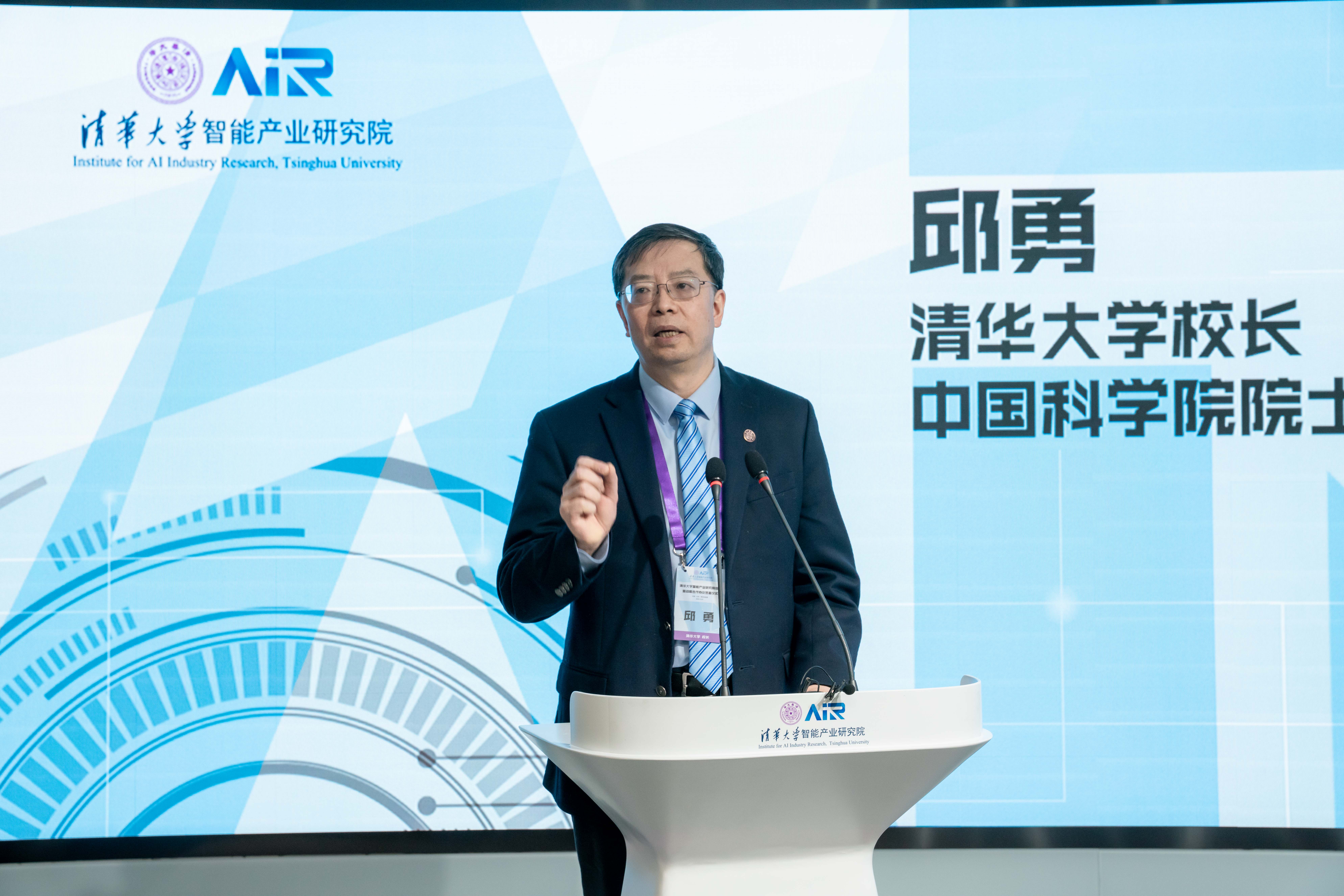
[Qiu Yong gives speech]
On behalf of Tsinghua University, Qiu Yong thanked Zhang Yaqin for his work and the guests for their long-term support for Tsinghua, and congratulated on the establishment of AIR. Qiu Yong agreed that just as Schwab said, “the Fourth Industrial Revolution is only limited by our imagination.” The same can also be said about AI, which is the very front of this revolution. Tsinghua has high hopes for AIR, expecting that it will focus on innovation to break new grounds in AI, and promote cooperation to bridge the industry and academia.
Tsinghua University attaches great importance to planning in the AI area, Qiu Yong noted. It has laid out plans for developing three engines - basic theories, international governance, and AI industry. The establishment of AIR marks the completion of Tsinghua’s initial planning for the AI industry. In June 2018, Tsinghua established the Institute for Artificial Intelligence, whose mission is to harness basic AI research to promote major applications, and interdisciplinary innovation in the form of “AI plus” in Tsinghua. In June 2020, Tsinghua founded the Institute for AI International Governance, which conducts research oriented to major theoretical issues and policy needs in AI international governance, in a bid to tackle new challenges brought about by the rapid development of AI, enhance Tsinghua’s influence on the academia and policy-making in the area, and provide intellectual support for China in joining in or even leading AI international governance.
2020 was an extraordinary year, Qiu Yong said. In response to the sudden COVID-19 pandemic, Tsinghua University ensured prevention and control measures, continued with teaching, research, and reform; set an example with its integrated online-offline teaching model; established Vanke School of Public Health to advance national public health; improved the academic assessment system and degree evaluation standard to foster a sound academic culture. By modernizing the governance system and governance capabilities, and promoting institutional and cultural progress, Tsinghua University not only paves the way for its own development in the long run, but also contributes to the high-quality and in-depth development of China’s higher education in a new era. For the upcoming 110th anniversary of Tsinghua University next year, Qiu Yong revealed, “Self-discipline makes excellence, innovation makes future” would be the theme. Not coincidentally, self-discipline and innovation are also among the keywords for AIR. It is expected that AIR will become a token of Tsinghua’s development in a new century.
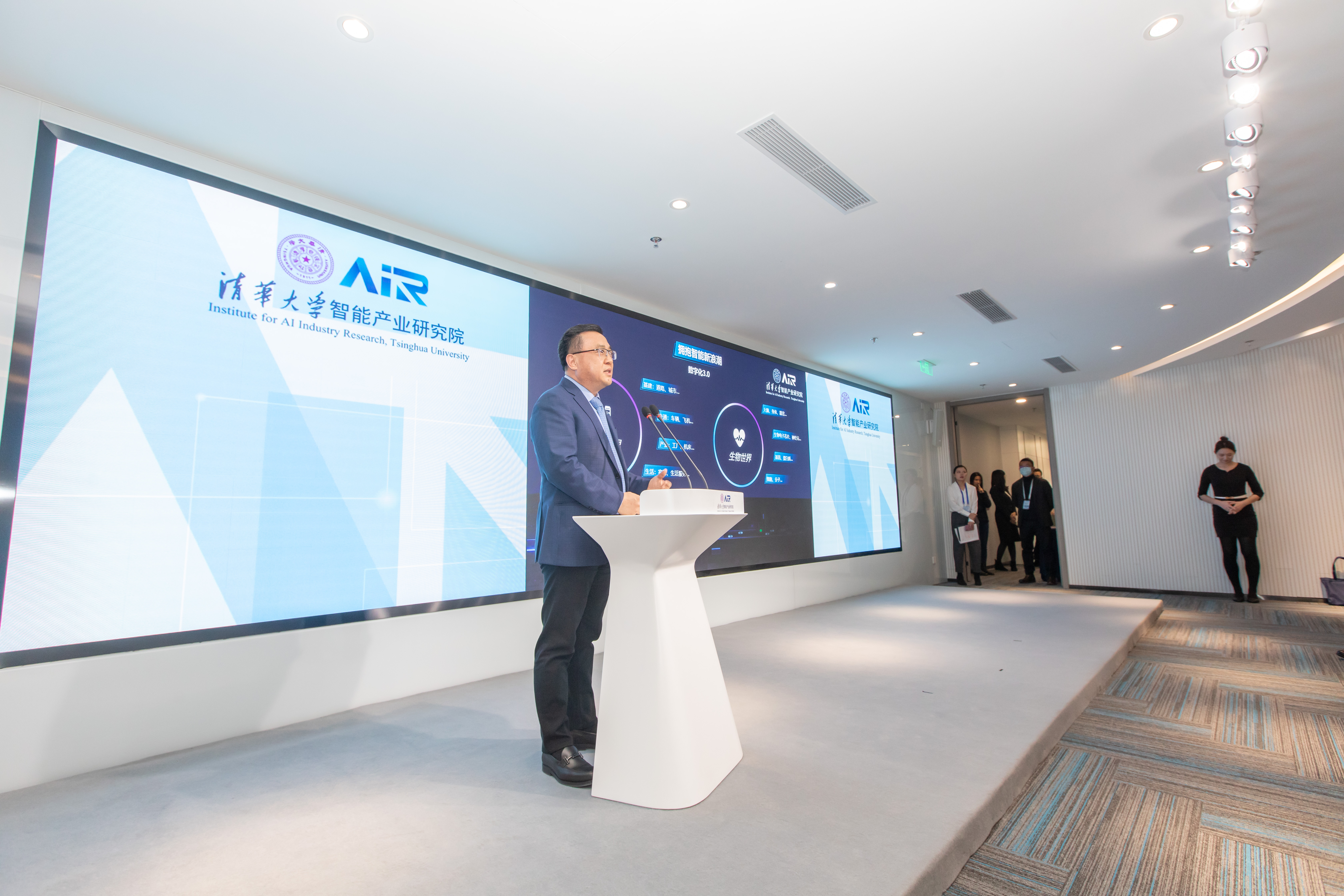
[Zhang Yaqin gives speech]
Zhang Yaqin introduced AIR’s development philosophy and future visions. He believed that China will become a pioneer and leader in the fourth industrial revolution, and that universities and enterprises have unshirkable responsibilities. For researchers and scientists, this is a historic opportunity. He believed that with AI at the core and the university-enterprise as dual engines, AIR teams will work towards their shared aspiration and blaze a new path to the future.
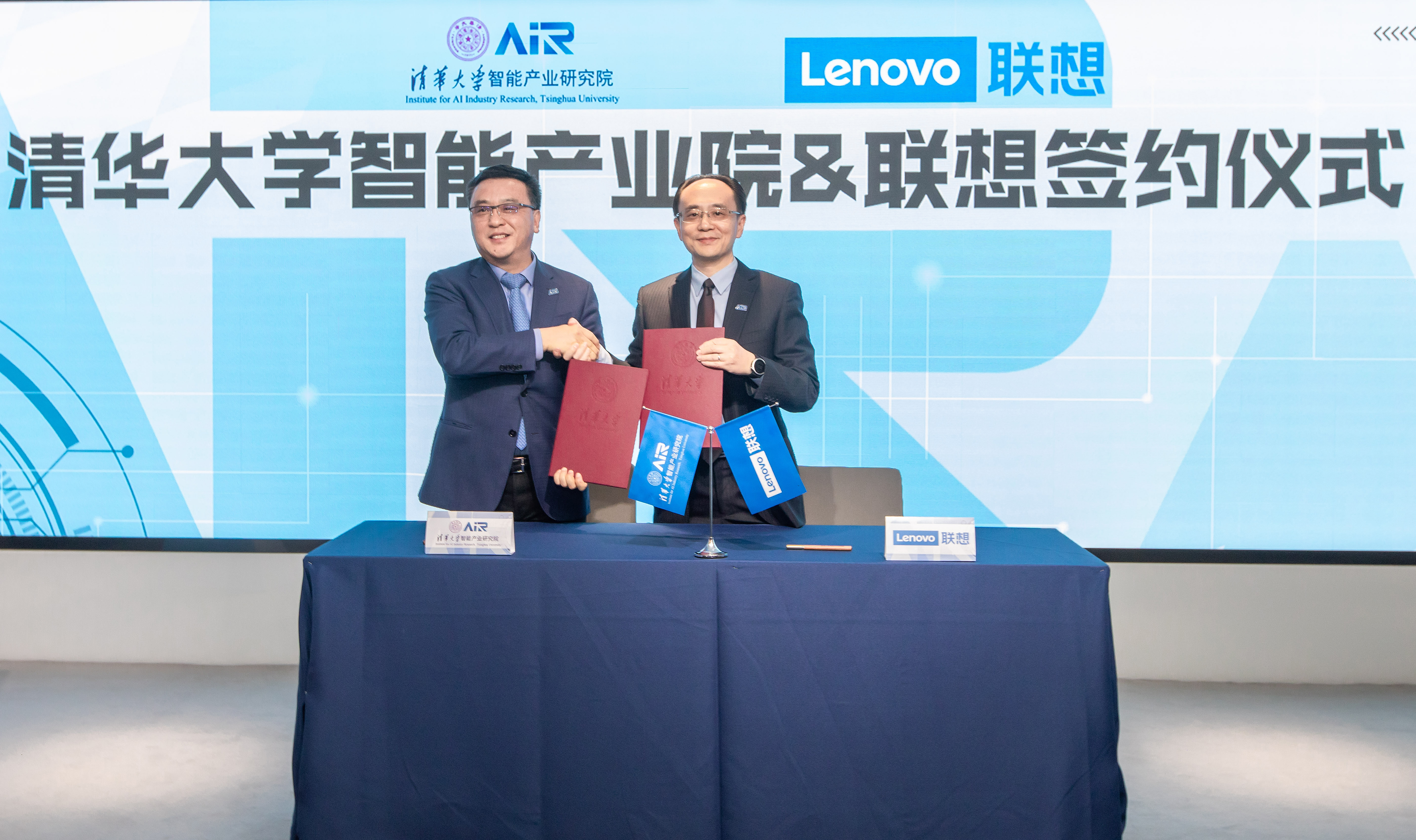
[Sign contract]
After that, Zhang Yaqin signed cooperation contracts with Lenovo CEO Guan Ruiyong, Standing Vice Director of Beijing Academy of Artificial Intelligence Cao Gang, Vice President of Baidu Li Zhenyu, AsianInfo CEO Ouyang Ye, respectively, to inject new vitality into the university-enterprise integrated innovation campaign.
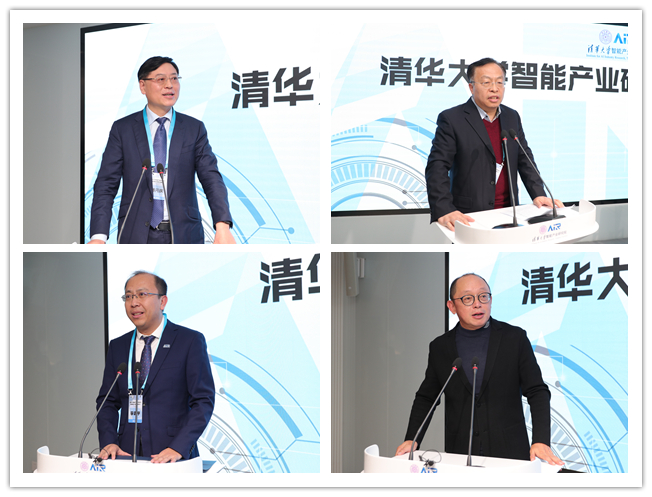
[Yang Yuanqing (upper left), Huang Tiejun (upper right),
Li Zhenyu (lower left), and Tian Suning (lower right) give speech]
Yang Yuanqing, Huang Tiejun, Li Zhenyu, and Tian Suning delivered speeches respectively, expressing their willingness to deepen cooperation with AIR and together build a top-class innovation R&D platform that creates greater value for the new technological revolution.
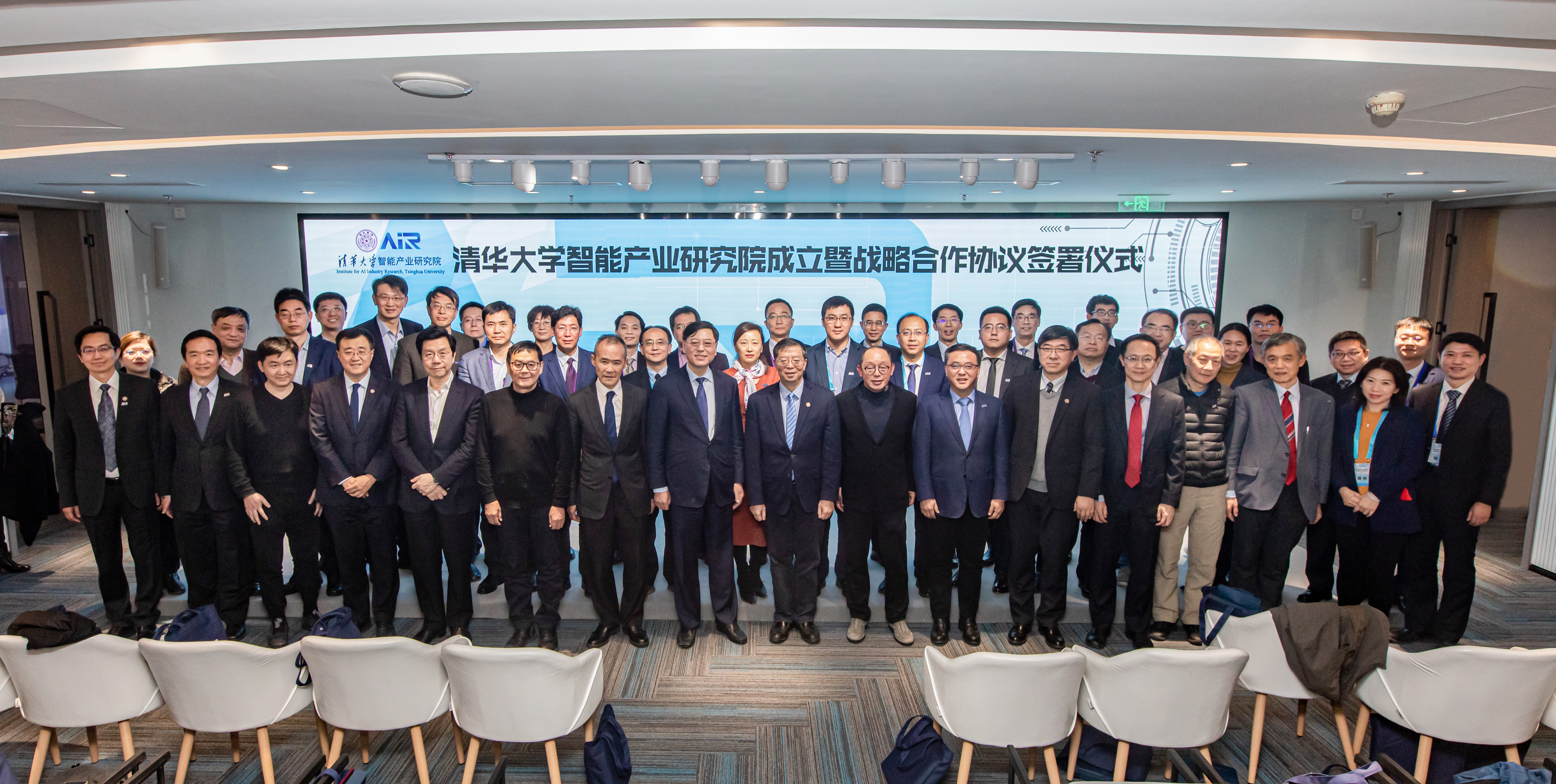
[Photo of ceremony participants]
Other participants of the ceremony included representatives of Tsinghua University School of Vehicle and Mobility, Department of Electronic Engineering, Department of Computer Science and Technology, Department of Automation, School of Public Policy & Management, and Global Innovation Exchange, and administrators of Tsinghua University R&D Affairs Office, Undergraduate Academic Affairs Office, Personnel Office, Office of International Cooperation and Exchange, Office of Laboratory Management, Finance Office, Office of Assets Management, Office of Technology Transfer, Tsinghua University Education Foundation, and Beijing-Tsinghua Industrial R&D Institute.


